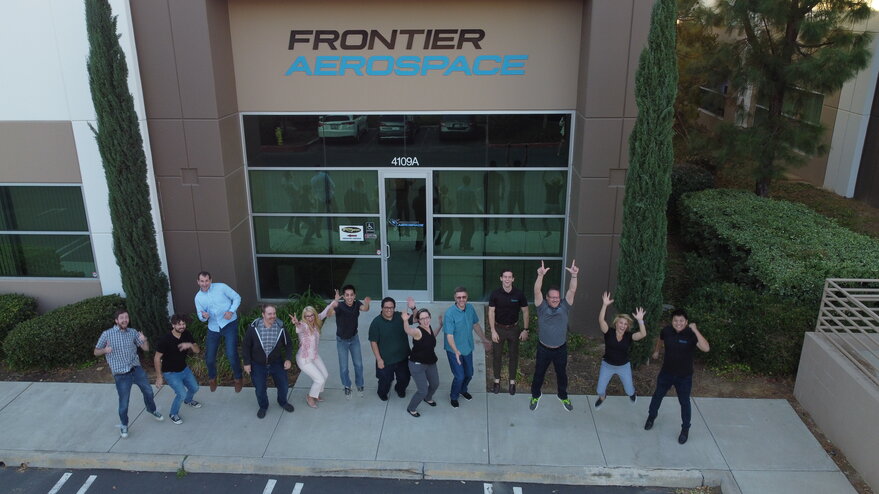Products You May Like
SAN FRANCISCO – Southern California startup Frontier Aerospace has won contracts to supply propulsion systems for two Astrobotic lunar landers.
Simi Valley, California-based Frontier Aerospace was already building 150-pound and 10-pound thrusters for Astrobotics’ Peregrine lunar lander, when the Pittsburgh-based company awarded Frontier Aerospace a contract in January to build 700-pound-thrust axial engines for the Griffin lunar lander.
The Peregrine lander is scheduled to launch in late 2021 on the first flight of the United Launch Alliance Vulcan Rocket. The larger Griffin Lunar Lander is slated for launch in 2023 to transport NASA’s Volatiles Investigating Polar Exploration Rover to the moon’s South Pole.
The Griffin lander will rely on the Frontier Aerospace engines to maneuver, enter lunar orbit and descent toward the lunar surface, according to a Feb. 16 news release.
Frontier Aerospace is scheduled to conduct the first hot fire tests of the Griffin engines this summer and to deliver flight qualified engines to Astrobotic in 2022.
“We’ve entrusted Frontier’s engines to perform the most critical propulsive maneuvers on GM1, building on our successful relationship from our first Peregrine mission,” Daniel Gillies, Astrobotic mission director for Griffin Mission One, said in a statement.
Frontier Aerospace is expanding its product suite to offer electric propulsion in addition to custom-built liquid propulsion systems.
“If a company came to us today and said, “We need engines or attitude control systems ranging from two pounds to 1,000 pounds,” we can create the engine for them,” Bryce Dabbs, Frontier Aerospace vice president of finance and operations, told SpaceNews.
In 2021, Frontier Aerospace has confirmed contracts valued at around $15 million, including work for Astrobotic and Masten Space Systems. Masten selected Frontier Aerospace to produce thrusters for the XL-1 lunar lander.
Frontier Aerospace got its start with a Small Business Innovation Research contract for the U.S. Missile Defense Agency.
In recent years, the startup has shifted its focus to developing propulsion systems for geostationary orbit and deep space under NASA contracts.
